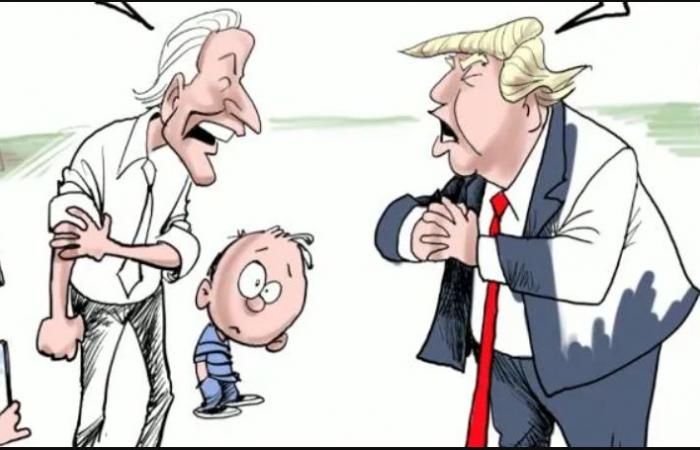In an era in which the inflation rate dominates headlines and investors’ concerns, the upcoming U.S. presidential election raises crucial questions about the global economic future.
In particular, the prospect of a return of Donald Trump at the White House in US Elections (especially following Biden’s clownish performance in his first TV debate) is fueling speculation about how his policies might affect price action and the economy as a whole.
Trump: Back to Deflation?
Contrary to popular belief, in-depth analysis suggests that a Trump presidency could be deflationary rather than inflationary. This prediction is based on a number of interconnected factors, starting with the trade policies that characterized his first term.
The US-China Trade War of 2018-2019 offers an illuminating precedent. During that period, there was the most significant percentage increase in U.S. customs duties since the Smoot-Hawley of 1930. According to data from Peterson Institute for International Economicsaverage tariffs on Chinese imports rose from around 3% in 2018 to more than 19% in 2019.
While the Biden administration has maintained and in some cases extended these tariffs, the current economic environment is radically differentmaking it unlikely that new tariffs could have the same inflationary impact.
The macroeconomic framework in which a potential Trump tariff escalation in 2025 would fit is considerably more fragile than it was in 2018. At the time, the‘ISM index (Purchasing Managers Index) was above 60, signaling a robust economic expansion. Federal Reserve interest rates were at 1.25%, providing ample room for monetary policy maneuvers. Today, the scenario has completely changed: the ISM has fallen below 50, indicating a contraction, while Fed rates have reached 5.5%.
This change of scenery is crucial.
The global economy, already weakened by the pandemic and geopolitical tensions, could be much more sensitive to external shocks. A recent report by the International Monetary Fund highlights how the global economic recovery is “heterogeneous and incomplete“, with many countries still struggling to reach pre-pandemic levels. In this context, new tariffs imposed by Trump could be the classic straw that breaks the camel’s back, pushing the world economy towards a deflationary recession.
And once again CHINA is the protagonist
A key element of this analysis is the role of the CHINA. Unlike seven years ago, China’s economy does not appear to be able to act as an engine for global growth. Recent data released by China’s National Bureau of Statistics shows a slowdown in economic growth, with GDP rising by 5.2% in 2023, the slowest rate in decades (excluding the pandemic period). This slowdown, combined with rising geopolitical tensions, makes it unlikely that China can offset the negative effects of new trade barriers.
Analyzing the Fiscal policiesan interesting picture emerges that transcends apparent partisan differences. Both Trump and Biden have contributed to the two largest deficits in the past 80 years, a phenomenon that reflects the so-called “uniparty” grip on American politics over the past decade. However, with inflation becoming the electorate’s primary concern, excessive government spending is likely to be viewed with greater skepticism.
Data from the Congressional Budget Office show that federal spending has grown at an average annual rate of 8 percent in recent years, but has recently slowed to a 2 percent annual decline. This trend could be exacerbated in the first year of a new presidential cycle, a period that typically sees a contraction in government spending.
Electoral projections play a crucial role in this analysis, although following the latest televised clash, unexpected twists cannot be ruled out.
The post-election fiscal outlook remains uncertain. While the Congressional Budget Office forecasts a deficit above 5.5% of GDP for the next 10 years, recent data show a slowdown in government spending. In the absence of sweeping elections and large tax cuts, fiscal policy is likely no longer a cyclically negative factor for bonds.
In conclusion, the analysis of possible scenarios in the event of a Trump presidency suggests that, contrary to common expectations, we could witness a deflationary rather than inflationary effect. Trade wars, in a weakened global economy, could accelerate an already existing deflationary trend. In addition, the growing attention of the electorate towards inflation could limit spending excessive publicity, regardless of who sits in the White House.
For investors and financial sector operators, it will be essential to closely monitor the evolution of the political and economic framework. Understanding these complex dynamics will be crucial to successfully navigate financial markets in the coming years, in a context where the certainties of the past may no longer be valid. The ability to quickly adapt to evolving scenarios and to correctly interpret economic signals will be more important than ever.
STAY TUNED!
–






